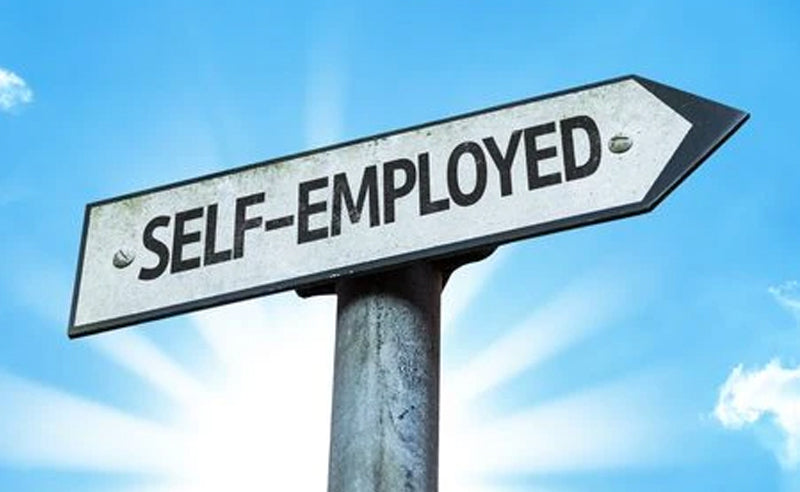
The Chancellor last evening announced the measure to support the self-employed in these difficult times, to be known as the Self-employment Income Support Scheme (SEISS), which will support self-employed individuals (including members of partnerships), who have lost income due COVID-19. The main condition that will impact the number of self-employed who will be eligible, is that their trading profits must be less than £50,000 (the Government believe this will support 95% of the self-employed).
Full details of eligibility below.
The scheme will allow the self-employed to claim a taxable grant worth 80% of your trading profits up to a maximum of £2,500 per month for 3 months, (March, April and May 2020). The scheme will be extended if the crisis continues.
Please note that the amount received will be taxable.
We must emphasise, that the scheme is for the self-employed, it does not apply to an individual who operates via a personal service company. Personal service company directors will have to look at the job retention scheme.
There is no requirement to make an application, HMRC will contact those who they determine to be eligible. The main issue is that this may not be until the beginning of June, due to HMRC resources, which are already under pressure dealing with time to pay arrangements and setting up the Job Retention Scheme. (Labour are requesting that the Government take a similar action as taken with the NHS, to ask retired or staff who have recently left HMRC, to come back to help to speed up the process).
Eligibility:
- self-employed individual or a member of a partnership;
- submitted your Income Tax Self-Assessment tax return for the tax year 2018-19 (the return which should have been filed by 31 January this year);
- traded in the current tax year;
- are trading when you apply, or would be except for COVID-19;
- intend to continue to trade in the tax year 2020-21, once the crisis has ended;
- have lost trading/partnership trading profits due to COVID-19;
- trading profits must be less than £50,000 and more than half of your income comes from self-employment.
The last point, £50,000, is determined by HMRC, by at least one of the following conditions:
- having trading profits/partnership trading profits in 2018-19 of less than £50,000 and these profits constitute more than half of your total taxable income;
- having average trading profits in 2016-17, 2017-18, and 2018-19 of less than £50,000 and these profits constitute more than half of your average taxable income in the same period.
If you started trading between 2016-19, HMRC will only use those years for which you filed a Self-Assessment tax return to assess your position.
If you have not submitted your Income Tax Self-Assessment tax return for the tax year 2018-19, you must do this by 23 April 2020. If you need help and assistance with this, please contact us.
The amount paid will be 80% of the average profits from the tax years. To work out the average, HMRC will add together the total trading profit for the three tax years (where applicable), then divide by three (where applicable), and use this to calculate a monthly amount.
Payment will be made by HMRC direct to the individuals bank account.
HMRC plan to be able to offer access to the scheme no later than the beginning of June 2020, when the department will contact those eligible directly and ask them to fill in an online form. Payments will be made directly into their bank account, and will be back dated to 1 March 2020, meaning a self employed taxpayer, will receive three months’ money in one go.
Watch for scammers – as this is an opportunity for fraudsters to make contact (texts, emails or calls) advising they are from HMRC and need your bank details to make payment or they can assist with your claim. As above, you can’t apply, you don’t make contact with HMRC, until they have contacted you to advise if you are eligible.
There is a significant delay in individuals receiving the money due to the work it will take to undertake the eligibility and assessments by HMRC, therefore changes have been made to the welfare payments system (Universal Tax Credit), so self-employed will be able to make an application. The Government has removed the 'minimum income floor' to the universal credit benefit, which we understand will increase the standard allowance from Monday 6 April, resulting in a single person aged over 25 entitled to an allowance of £409.89.
Please note that we are not experts in benefits and claiming benefits may impact the amount of the grant, advice should be taken direct from the Department of Work & Pensions. Telephone number 0800 328 5644 website
Based on above, groups of the self-employed are not going to eligible:
- Those whose trading profits are more than £50,000 a year;
- Those who have only started self-employment recently (you have to have filed a tax return for self-employed earnings in 2018/19);
- If you have made a trading loss.
What can you do:
- You can apply for a business interruption loan or other bank lending. See our previous updates for more details;
- You can defer your 31 July 2020 payment on account until January 2021;
- Apply for universal credit in full.
Even though an individual may be eligible, you still may have to take some of the measures above, until the grant arrives. If you are eligible for the grant, this will assist in making an application for a loan.
From a tax technical point, a statement made in the Chancellor’s announcement, could see an alignment of self-employed national insurance contributions (NIC), to employed NIC, as the self-employed currently pay less.
“It is harder to justify the inconsistency of contributions. We are all in this together and everyone, both PAYE and self-employed, are now benefiting from the same state support. When we start to come out of this and right the ship, there will be questions about ensuring equivalence in the future”
As with the other measures announced there will be some refinements and changes. However, the key point for most self-employed will be raising cash in the interim.



